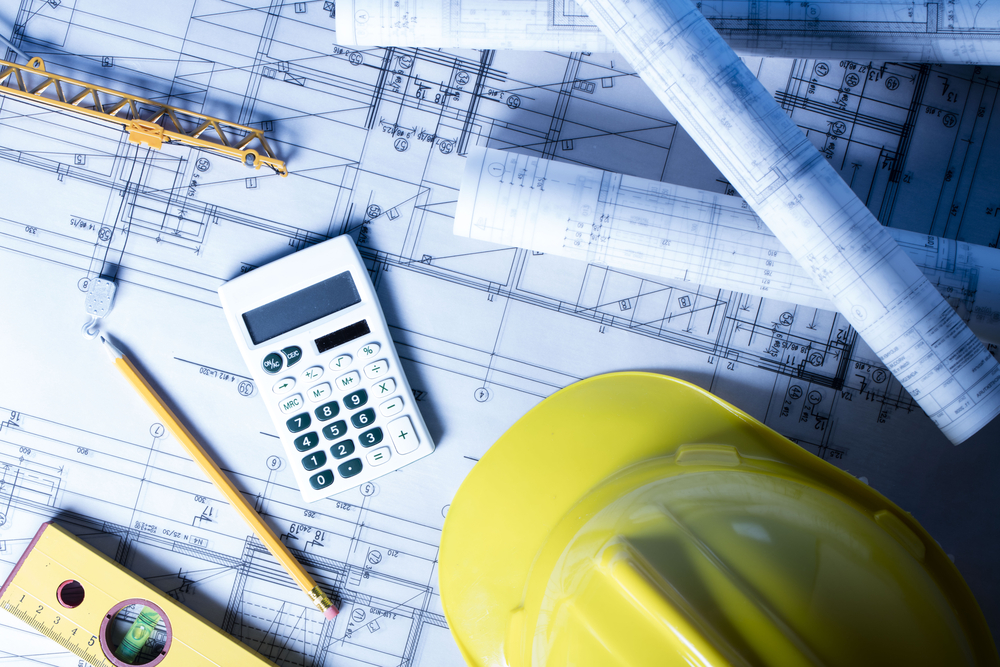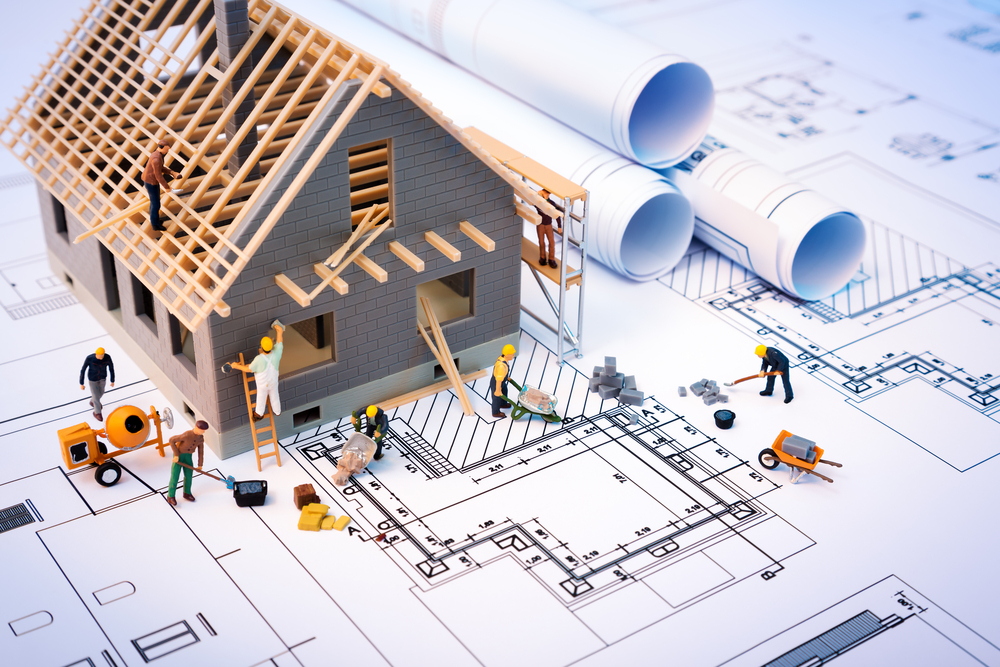Property development can be a lucrative business, but it’s important to be aware of the hidden costs involved. By understanding and accounting for these costs, property investors and developers can make more informed decisions, mitigate risks, and ensure the long-term viability of their projects.
In this comprehensive guide, I’ll break down some of the obvious and unexpected costs associated with property development in Melbourne.
Here Are a Few Costs to Keep in Mind if You’re Developing Property in Melbourne

Purchase Costs
Let’s get the obvious out of the way first.
Unless you happen to be sitting on the perfect development site, you’re going to have to go out and buy one.
And just like any investment, you need to buy the right type of development site in a high-growth area that’s likely to perform above average in the future.
Your upfront purchase price is going to include the deposit, legal and conveyancing fees and stamp duty. Other additional costs that can fall on the buyer include various rates and taxes, mortgage registration fees, transfer fees, and other miscellaneous settlement costs.
The property purchase price is one of the most significant expenses you will face, so consider partnering with a buyers advocate in Kew East or wherever you’re buying to negotiate the best price.
Planning Costs and Professional Fees
Planning costs and professional fees come into play before you even acquire your development site and they remain in play for the entire active development timeline.
Here are some of the activities you may need to allocate time and money to in the planning phase:
- Surveying
- Technical drawings, including floor plans, site plans, and elevation drawings
- Working drawings for more comprehensive information on structural, electrical, and plumbing plans
- Building design and Interior design planning
- Demolition costs
- Subdivision plans
- Upgrading or connecting power, telecommunications, and other utilities and infrastructure
- Soil testing
- Environmental assessments
- Traffic studies
- Other permits and inspections
The professionals you may need to engage as part of the process may include:
- Land surveyors
- Civil engineers, as well as environmental, geotechnical and traffic engineers
- Quantity surveyors
- Project managers
- Architects
- Building designers
- Buyers advocates
- Property development consultants
Planning activities and consultant fees are usually charged based on the scope and complexity of your project, so it’s important to factor in these extra costs when budgeting.
Construction Costs

Property development is the ultimate value-add and the best way to generate equity, expand your property portfolio, and create real wealth. But before you can do any of that, you need to get building.
Sure, the most basic form of property development is just subdividing an empty block of land and calling it a day. But you can get slightly more ambitious than vacant land with dual occupancy developments, townhouse projects, and other construction projects.
The most obvious building cost you will face here is the 25-35% deposit for a development loan. If you have equity in an investment property, you can source your deposit from here, but otherwise, you will need separate cash funds to get the process started.
When dealing with contractors and builders, fixed-price contracts are essential. These agreements outline the cost of construction and provide a clear understanding of the expenses and responsibilities involved. By having a fixed price building contract in place, both parties can be confident that the agreed-upon price will not change, ensuring a transparent and fair process.
Construction projects are notorious for their unpredictability, and unforeseen expenses can arise at any point during the process. Smart developers will set aside additional funds that can be used to cover additional expenses. These expenses may include:
- Portaloos, fencing, and other temporary site requirements
- Flood protection measures if you are developing in a flood-prone area. You may need to install flood barriers, raise the foundations of the building, or take other actions.
- Bushfire protection measures if you are developing in a bushfire-prone area. You may need to clear vegetation, create firebreaks, or take other actions.
- Extra lighting for safety and security onsite.
- Funds to install a driveway.
- Additional landscaping expenses.
In the current environment, construction and development projects are facing greater financial and timeline challenges than they have in years. This makes it more important to have contingency construction funds than ever before.
Some of the issues affecting construction include:
- Supply chain problems
- Labour shortages, partly due to large Government construction projects absorbing a lot of the skilled labour market
- Fuel shortages
- Higher demand and higher prices for construction materials (including steel, PVC, crushed rock, and copper)
- A strained construction and land development sector due to COVID-19 and Homebuilder Grants
Council Contributions
Local councils play a crucial role in the development process. They can ensure everything runs smoothly and effectively, or they can make the process hell.
Partnering with Melbourne property development consultants who know how to navigate local councils will go a long way to smoothing out this process.
Additionally, property developers and investors should familiarise themselves with the council fees associated with the process, as they can significantly impact your project’s budget and timeline.
These include:
- Development application fees and charges
- Building permit fees
- Planning submission fees
- Other council fees
- Development contributions and financial contributions made towards infrastructure and services in the local area.
Insurance
One of the biggest ways to derail your development project is having no coverage when things go wrong.
Insurance expenses to consider include coverage against property damage, weather damage, fire and flood, theft and burglary on the development site, and more. You may also need to take out some sort of personal or public liability insurance, professional negligence insurance, and general building insurance.
All contractors and consultants that work on your project should also have their own insurance.
Holding Costs
Holding costs are inevitable, but the key to controlling them is controlling your project timeline. It is vital to set a realistic and efficient project timeline from the outset and maintain this timeline as strictly as possible.
If you’re pursuing a dual occupancy development with an existing property, you can rent this property for the duration of the process to offset holding costs with rental income. Many holding costs can also be offset at tax time.
Some of the holding costs you may face include:
- Council rates
- Water rates
- Land tax
- insurance costs
- Loan application fees, mortgage repayments, interest payments, and other loan fees
- Charges for electricity and other services
Factors that may affect holding costs include:
- Delays between vacant land or property acquisition and the commencement of construction
- Delays in obtaining permits, finalising designs, or securing finances
- Fluctuations in interest rates
- Longer construction period than predicted. Factors such as weather conditions, labour shortages, inefficient project management, and lack of available materials can all increase build time and holding costs.
Marketing and Sales Costs
At some point in the development process, you’re going to want to start making money from your project. And you know what they say – you’ve got to spend money to make money.
You might be looking to sell your development with plans and permits in place or once construction is complete. Even if you’re retaining your development and living in one of the properties, you’re going to want to rent the others.
The fees involved in marketing and selling your property may include:
- Promoting your development or properties through various online, social media, and print channels
- Project signage
- Creating brochures and floorplans
- Real estate agent fees and commission paid to the selling agent/agency
These 4 Mistakes Can Blow Your Property Development Budget

1. Due Diligence and Feasibility Failures
Just because everything is going to plan, it doesn’t mean everything is going smoothly. If you’ve got your assumptions wrong, you could still end up in a tricky financial situation down the line. You could even find yourself in an unworkable situation due to zoning constraints or financing problems
That’s why it’s so important to get your feasibility analysis right before you make any purchase. A failure to account for all your costs at the feasibility stage could significantly affect your profit margin at the end of the process.
2. Cost Cutting
Sure, do everything as cost-efficiently as possible – even DIY where you can.
Just remember that the price to fix a mistake can be much higher than what you will save by going down the cost-cutting route in the first place. Even if you can get something done for a cheaper price, consider whether this will lead to project delays that add other costs to your development.
3. Partnering with Industry Rogues
Even if you’re handling the whole development process yourself, there will still be times when you need to turn to the experts.
For example, choosing a builder can make or break your project timelines and your development budget. The same thing goes for engineers, architects, and project managers.
To ensure you hire the right professionals, bring in an expert who can wrangle all the other experts. A well-connected property investment consultant in Melbourne will be able to recommend trusted local professionals – from consultants to building teams.
4. Not Expecting the Unexpected
In property development, you don’t just need to expect the unexpected – You need to actively prepare for it!
Circumstances will change. Delays will happen. Unforeseeable events will occur. How do you prepare for something when you’re not sure what’s coming?
Well, due diligence and feasibility will help you avoid those own goals. But beyond that, you need to work a cash buffer into your development budget to ensure you can get to the finish line and start making your money back.
A contingency budget of at least 5-10% allows you to proactively prepare for any issues that may arise along the way. And if that money is leftover at the end of the project, that’s more money in your pocket and the potential for a better Return On Investment than expected.
You Can Make Money Through Property Development!
Yes, there are many many costs associated with property development, and yes, just about anything can go wrong – even with solid preparation.
But when I say there is money to be made through property development, I mean there is big money to be made through property development.
Plus, I firmly believe it is less risky than property investment overall. But you have to be prepared and you have to get it right.
If you need buyers agents in Templestowe Lower or property investment advisors anywhere across Melbourne, turn to Property Analytics. Our proven process has been designed to help you secure quality investment properties and development sites – and it’s all backed by our own data and analysis.
We plan the strategy, shortlist the properties, and conduct due diligence and feasibility analyses. Then we negotiate the purchase price, secure the site, and guide you through development planning and design so you’re ready to build.
Chat with our team to tick every box in the property development process.

